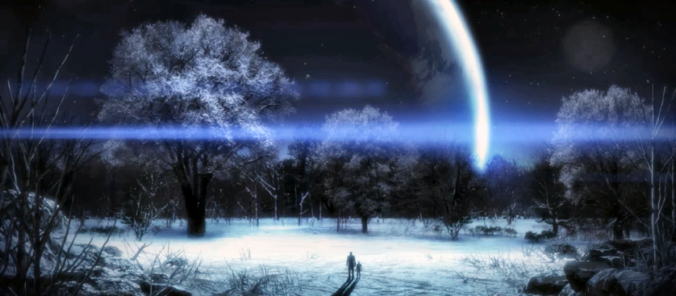Our guest blogger: Ria is a 27 year-old graduate student in museum studies living in England. She writes about folklore and fairytales at http://littleleotas.blogspot.co.uk and can be found on Tumblr @ridethecricket and Twitter @littleleotas.
This week she talks to us about Mass Effect and mythology.
One of the best things about studying mythology is it enhances your enjoyment of everything. Mythology references are made in almost all media you encounter, often giving you hints about the story or the characters, or just as a funny reference to make you smile. Mass Effect is no exception to this, jam-packed full of mythology references, and as with all things Mass Effect, some of them will make you laugh and some of them will make you cry.
Before I continue, I want to make clear that the term ‘mythology’ is not analogous to ‘fictional,’ nor do I ever intend it that way. The blanket term ‘mythology’ refers to stories and does not inherently imply those stories are false. ‘Mythology’ is used often to encompass both religious and cultural traditional tales, and that is the sense in which I use it.
If I were better at math I would work out exactly how many planets in the Milky Way galaxy have mythology-inspired names, but suffice to say it is a bunch of them. The planets of the Pax system in the Horse Head Nebula have names from Slavic mythology (a fact which really amused me because I’ve always named all my Pokemon after mythological figures and every Magmar I’ve ever had was named Svarog, which is the first planet in the Pax system and also the god of the sun). The systems of the Argos Rho cluster are all Greek mythological monsters, and the Hades Nexus also uses names from Greek mythology. The Rosetta Nebula contains both Greek and Biblical references. The Osun system uses names from Yoruba mythology. Aside from grouping like names together, there’s no real significance to naming minor planets that don’t have major plot relevance with names from mythology, but it’s still fun to approach a planet and recognise the name.
The Charon Relay is a clever one. Charon is, as far as we know at present, the largest of dwarf planet Pluto’s five moons. Apparently in 2149 we will discover that it’s actually a mass relay, a point of access between the world as we know it right now and everything unknown out in the galaxy. The name Pluto, as you probably already know, comes from classical mythology and refers to the ruler of the underworld. The name of the moon in question comes from the ferryman who carries the souls of the departed from the world of the living into the underworld: Charon. A very fitting name for a mass relay, a transport device, but the sinister undercurrent is also well-placed. We couldn’t have known those relays were ferrying us toward our destruction at the time, but in retrospect it’s chilling.
Naming a planet Eden Prime really was tempting fate. In Christian mythology, Eden is a utopian paradise, unspoiled by sin before the Fall of Man. The other planets in the Exodus cluster (one of the first systems populated by colonists after the discovery of the Charon Relay, and a reference to the departure of the Jewish people from Egypt) are similar terms for places famed for beauty and peace. If you read past the idyllic descriptions of Eden, however, you get to the aforementioned Fall, which during the first Mass Effect game is read as foreshadowing of the geth destruction of the human colony there, but in the From Ashes DLC for Mass Effect 3 becomes a harrowing reference to the last stand of the Protheans.
Despoina is a Greek goddess, the daughter of Demeter and Poseidon, worshipped as part of the Eleusinian Mysteries. Her real name cannot be divulged to anyone who has not been initiated in the mysteries. She is an enigmatic figure, and it’s only fitting that her name be given to the hiding place of the Leviathans, equally mysterious figures. ‘Leviathan’ itself is a general term given to mythological giant sea-dwelling creatures. The reaper corpse identified as the Leviathan of Dis calls to mind a few references. The City of Dis comprises the sixth through ninth circles of hell in Dante’s Divine Comedy, which itself was named as a reference to the Roman god of the underworld, Dis Pater (who was later conflated with Pluto, which brings us in a nice tidy Reaper circle). That is likely the reference the writers were going for, but I also like to think of the dísir (singular: dís) of Norse mythology: female spirits who represent fate, sometimes equated with the norns (whether or not that’s accurate is a topic of debate). The Leviathans and Reapers do rely heavily on the concept of fate (“The cycle must continue. There is no alternative.”), and I think this quote in particular from the epic poem Hamðismál is particularly relevant:
“Hamther spake,
28. ‘His head were now off,
if Erp were living,
The brother so keen
whom we killed on our road,
The warrior noble,–
’twas the dísir that drove me
The hero to slay
who in fight should be holy.’”
Back to the briefly mentioned Demeter, you may be more familiar with her other daughter, Despoina’s half-sister, Persephone. The story of Demeter and Persephone is referenced in the context of Samara and her daughter Morinth. Persephone is abducted by Hades and taken to the underworld, and Demeter searches the earth looking for her daughter. When Persephone is found, she cannot return to the life she had before because she has eaten food from the underworld. The six pomegranate seeds she ate correlate to the six months she spends in the underworld, and the remaining six months of the year she spends with Demeter. Samara similarly searches the galaxy for her lost daughter, though at least Samara already knows Morinth can never return to the life they had before. When we meet Samara, she is looking for the name of the ship Morinth left Illium on: the AML Demeter.
Not every mythology reference in Mass Effect is so sad, at least. Meeting Liara’s assistant on Illium, Nyxeris, you may have initially gotten the feeling there was something up with her. Maybe it was her demeanour, maybe it was the fact that she’s named for the Greek goddesses of night (Nyx) and discord (Eris). Who’s to say? And maybe if you did form an attachment to her in the brief time we spent with her, her end did make you sad, but personally, I was just a little upset I didn’t have a speech option to warn Liara.
This is by no means an exhaustive or definitive list, and surely we’ll have a ton more references to spot in Andromeda. Although, on that note, if you want to look into the mythological princess Andromeda, well…we may be in for trouble.
-Ria

